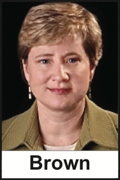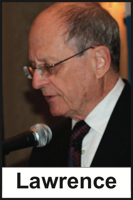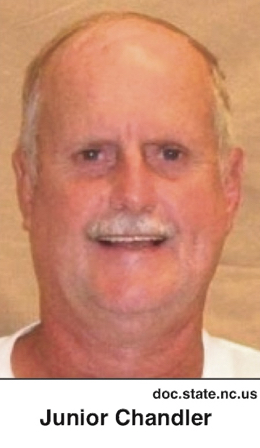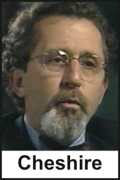Rascals case in brief
In the beginning, in 1989, more than 90 children at the Little Rascals Day Care Center in Edenton, North Carolina, accused a total of 20 adults with 429 instances of sexual abuse over a three-year period. It may have all begun with one parent’s complaint about punishment given her child.
Among the alleged perpetrators: the sheriff and mayor. But prosecutors would charge only Robin Byrum, Darlene Harris, Elizabeth “Betsy” Kelly, Robert “Bob” Kelly, Willard Scott Privott, Shelley Stone and Dawn Wilson – the Edenton 7.
Along with sodomy and beatings, allegations included a baby killed with a handgun, a child being hung upside down from a tree and being set on fire and countless other fantastic incidents involving spaceships, hot air balloons, pirate ships and trained sharks.
By the time prosecutors dropped the last charges in 1997, Little Rascals had become North Carolina’s longest and most costly criminal trial. Prosecutors kept defendants jailed in hopes at least one would turn against their supposed co-conspirators. Remarkably, none did. Another shameful record: Five defendants had to wait longer to face their accusers in court than anyone else in North Carolina history.
Between 1991 and 1997, Ofra Bikel produced three extraordinary episodes on the Little Rascals case for the PBS series “Frontline.” Although “Innocence Lost” did not deter prosecutors, it exposed their tactics and fostered nationwide skepticism and dismay.
With each passing year, the absurdity of the Little Rascals charges has become more obvious. But no admission of error has ever come from prosecutors, police, interviewers or parents. This site is devoted to the issues raised by this case.
On Facebook
Click for earlier Facebook posts archived on this site
Click to go to
Today’s random selection from the Little Rascals Day Care archives….
Click for earlier Facebook posts archived on this site
Click to go to
Today’s random selection from the Little Rascals Day Care archives….
It’s a long way from Duke to Avery-Mitchell Correctional
 March 21, 2015
March 21, 2015
I spent several hours Friday at Duke University Law School listening to experts detail “Evolving Trends in Forensic Science.”
Fascinating. Topics ranged from the effects of sleep deprivation on jurors’ decision-making to the use of cell tower evidence to determine suspect location. But I was wedged into an auditorium otherwise full of lawyers to hear pediatrician Cynthia Brown and defense attorneys Mark Montgomery and Lisa Miles outline the latest standards for medical exams in cases of suspected child abuse. The good news – if you’re being wrongfully prosecuted in 2015 – is that those standards have become dramatically more specific and sophisticated.
If, however, you were wrongfully prosecuted in 1987, then the fruits of that scientific progress remain maddeningly out of reach. Waiting for me when I returned home Friday was a letter from Junior Chandler:
“April 15 will be 28 yrs – nearly half my life, all because of lies when I did no crime. It’s a shame & disgrace to the whole N.C. justice system, not only to do this but never to be willing to say they were wrong….”
Chaplain writes memoir about supporting defendants
Nov. 21, 2011
 Raymond Lawrence, the New York City chaplain who founded the Committee for Support of the Edenton Seven, was an attentive and often appalled observer at Bob Kelly’s trial. This passage is excerpted from a memoir now posted in its entirety on the Bookshelf:
Raymond Lawrence, the New York City chaplain who founded the Committee for Support of the Edenton Seven, was an attentive and often appalled observer at Bob Kelly’s trial. This passage is excerpted from a memoir now posted in its entirety on the Bookshelf:
“Among the more obscene performances I witnessed by the prosecution was a long argument that Robert Kelly had had vaginal intercourse with a five-year-old girl.
“On a screen about four feet square the prosecutor displayed a color slide the girl’s genitalia, with two adult thumbs shown pulling back the labia to display the hymen and vaginal opening. The hymen appeared fully intact, covering most of the vaginal opening. The prosecutor thus spent what I recall as hours arguing that the stretch marks in the hymen were evidence of adult penile penetration.
“I wondered why the defense attorney did not rise up and ask if this were Alice in Wonderland…. It was as if I had entered an alternate universe.”
Chandler’s sentence designed to lock him up forever
 Nov. 8, 2015
Nov. 8, 2015
“The latest obstacle to Gerald Amirault’s freedom came without fanfare. A three-member panel of the Massachusetts Department of Corrections has now decided that, since the prisoner has refused participation in treatment programs for sex offenders, he was considered to be ‘in denial.’ Permission for him to appear before the Board that could grant early parole would therefore be denied.”
– From “How to Extort a Confession” in the Wall Street Journal (April 22, 2002)
Steadfast in his supposed “denial,” Amirault wouldn’t be paroled until 2004 – 18 years into his 40-year sentence.
Compared with Junior Chandler, however, he was lucky. Chandler’s two consecutive life sentences have made him ineligible for parole. For a brief moment during his long and maddening appeals process, in 2008, it seemed those life sentences would be made concurrent – thus qualifying him for parole consideration. But a switch in judges, orchestrated by the attorney general’s office, vaporized that prospect.
A footnote: The North Carolina Department of Correction has its own Sexual Offender Accountability and Responsibility program. “Through psycho-educational modules, behavior techniques and empathy training,” its website says, “S.O.A.R. participants learn that sexually abusive behavior is both controllable and manageable.”
Junior Chandler recalls having been invited to participate, but …. “They said I had to admit I was guilty. I told them I couldn’t do that, because I hadn’t done anything…. What would you do?”
Betsy Kelly wouldn’t succumb to state’s torture
 July 16, 2012
July 16, 2012
“Elizabeth Kelly was denied parole Friday, three months after pleading no contest to charges of sexually abusing children at her Edenton day care.
“Mrs. Kelly, sentenced to seven years, was eligible for parole upon entering prison because she had already served more than two years while awaiting trial.
“Prosecutor Bill Hart said opposition to Mrs. Kelly’s release was heightened by her statements of innocence after entering her plea.
“‘From my work dealing with sex offenders there is no way you can treat a sex offender and restore them to the community until that person admits the wrongness of her actions and takes responsibility….’”
– From the Associated Press, April 16, 1994
From the beginning, the prosecution never missed a chance to tighten the thumbscrews on Betsy Kelly: Plead guilty, implicate your husband or suffer grave consequences. Although she eventually took a plea bargain, she never accommodated Bill Hart’s pious insistence that she admit “the wrongness of her actions.”
In October 1989, about six weeks after her arrest, a hearing had been held in Raleigh on whether Kelly should be forced to move from a mental health unit into Dorm C at women’s prison.
Recalls Faye Sultan, a Charlotte forensic psychologist who testified on her behalf: “She had been found guilty of nothing at that point, but she was being housed in the most isolated, restrictive facility in the prison, where Death Row and disciplinary inmates were housed. Seems a bit unfair, no?”
Sultan testified that Kelly’s “psychological condition is rapidly deteriorating, and in fact she is on the edge of becoming psychotic.”
Why would the state insist on moving a pretrial “safekeeping” defendant to such a hostile environment? “The reason was to pressure Betsy,” says Joe Cheshire, her lawyer. “They didn’t know her very well, did they?”











0 CommentsComment on Facebook